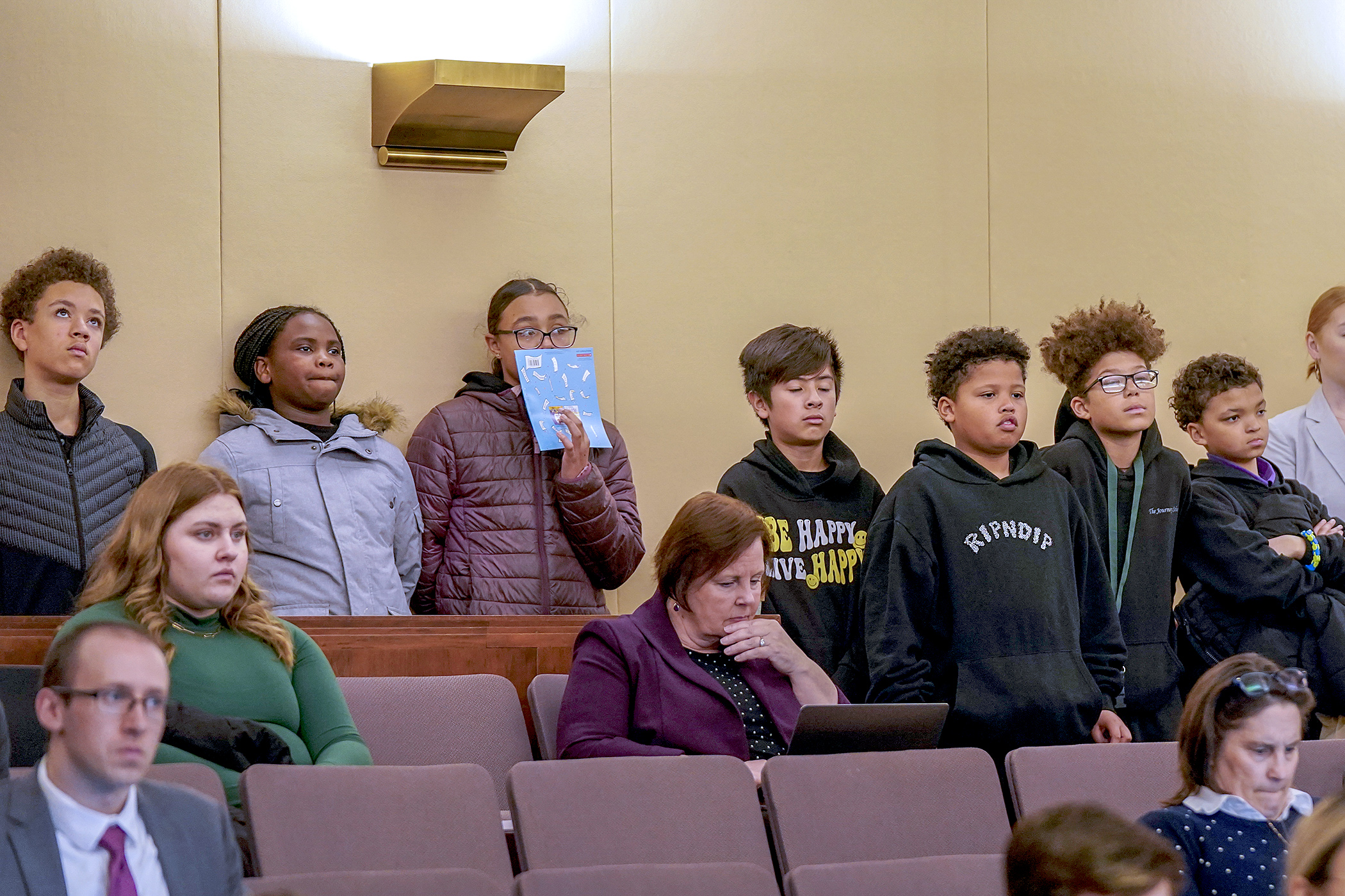Education finance bill gets passing grade in committee

The House Education Finance Committee passed its comprehensive finance bill along party lines Wednesday.
The bill would appropriate $43 million in supplemental public education funding in fiscal year 2025, and, among other things, expand the voluntary pre-kindergarten program, create programs to investigate student attendance and truancy, and pay student teachers a stipend for their student teaching experience.
Rep. Cheryl Youakim (DFL-Hopkins) sponsors HF5237 that, as amended, now heads to the House Taxes Committee.
“This bill continues our investments in our school districts, our teachers and, most importantly, our students,” she said.
It would provide a significant funding bump to the Minnesota Reading to Ensure Academic Development (READ) Act. Signed into law in 2023 with the goal of having every child reading at or above grade level every year, more than $37 million would be directed toward the act — with $31.37 million allocated to complete teacher training.
Rep. Peggy Bennett (R-Albert Lea) said more should be done because only about 49% of students in Minnesota can read proficiently and the READ Act funding doesn’t go far enough to help student literacy.
“Teachers, administrators, school board members, parents, they’re crying out about this reading crisis. And I don’t believe that we have appropriately prioritized this in this committee.”
[MORE: Supplemental education finance bill would provide $33 million for READ Act]
Paying student teachers
Many aspiring teachers say the largest barrier to attaining their license is the student teaching experience – 12 weeks with no pay. To help create more potential teachers, the bill would provide $7 million to create a pilot program at seven teacher preparation universities and colleges to pay student teachers a stipend.
Rep. Ron Kresha (R-Little Falls) said while the student teacher stipend pilot program funding and bipartisan work on truancy and absenteeism studies were good parts of the bill, there are still parts that fall short. However, Republicans offered no amendments.
“We wanted to talk about the bill,” Kresha said. “I think this is largely off of the governor’s recommendations, and I believe the governor has too much power and input on the process.”
Mandates placed on schools during last year’s session continue to be a problem for districts, he said. “When I hear a testifier come up and say their biggest compliment to this bill was largely no new mandates … that’s a concern we should all hear.”
Related Articles
Search Session Daily
Advanced Search OptionsPriority Dailies
Speaker Emerita Melissa Hortman, husband killed in attack
By HPIS Staff House Speaker Emerita Melissa Hortman (DFL-Brooklyn Park) and her husband, Mark, were fatally shot in their home early Saturday morning.
Gov. Tim Walz announced the news dur...
House Speaker Emerita Melissa Hortman (DFL-Brooklyn Park) and her husband, Mark, were fatally shot in their home early Saturday morning.
Gov. Tim Walz announced the news dur...
Lawmakers deliver budget bills to governor's desk in one-day special session
By Mike Cook About that talk of needing all 21 hours left in a legislative day to complete a special session?
House members were more than up to the challenge Monday. Beginning at 10 a.m...
About that talk of needing all 21 hours left in a legislative day to complete a special session?
House members were more than up to the challenge Monday. Beginning at 10 a.m...